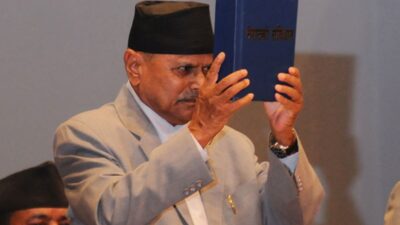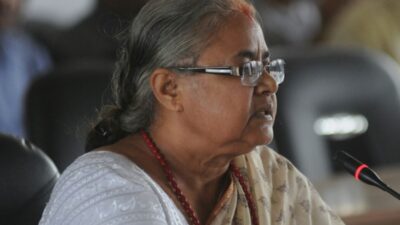Now Reading: Why can’t Nepal’s provinces govern effectively under federalism?
- 01
Why can’t Nepal’s provinces govern effectively under federalism?
Why can’t Nepal’s provinces govern effectively under federalism?

It has been a decade since Nepal embraced federalism with the adoption of the Constitution of Nepal 2015. The new system aimed to create a stable political environment and ensure equitable development across all levels of government. Yet, after ten years, the promise of federalism remains largely unfulfilled.
Rather than acting as engines of growth, provincial governments have often become centers of political turbulence. Frequent government changes, internal party conflicts, and overreliance on the federal government have weakened provincial authority and stalled development. Only the first Madhes provincial government managed to complete a full five-year term; all others collapsed before their terms ended. This constant reshuffling has slowed policy implementation and eroded public trust.
Bagmati Province, Nepal’s economic hub and politically significant region, offers a stark example. In just seven and a half years, it has seen six Chief Ministers. The latest, Indra Bahadur Baniya of the Nepali Congress, took office following the resignation of Bahadur Singh Lama Tamang, part of a power-sharing deal between the Nepali Congress and CPN-UML.
The instability extends beyond leadership. Over 75 individuals have served as ministers during this period, with ministries doubling from seven to 14 to accommodate shifting alliances. Cabinets have expanded, sometimes to 18 members, creating inefficiency and bureaucratic bloat.
Former Bagmati Province minister Ganganarayan Shrestha blames Nepal’s parliamentary system and electoral structure for the chaos. “Federalism is not at fault,” he says. “The problem lies in coalition politics and leadership failures that prevent any party from securing a stable majority.”
Factionalism within parties has driven much of the instability. Ministerial positions are allocated as rewards to satisfy rival groups rather than based on merit or public need. As a result, citizens increasingly view provinces as self-serving and ineffective. Changes in the federal government often trigger reshuffles in the provinces, undermining the principle of autonomy promised by the constitution.
Krishna Prasad Sharma Khanal, parliamentary leader of the Unified Socialist Party in Bagmati, criticized major parties for hollow commitments to stability. “We voted for confidence three years ago, expecting five years of governance,” he said. “Yet votes of confidence are repeatedly called, turning political stability into political drama.”
Provincial dependence on the federal government remains a critical issue. Key legislation, such as the Civil Service Act and Police Act, has not been fully implemented, leaving provincial administrations constrained. Even when Bagmati Province passed its own Provincial Police Act and Civil Service Act, federal control over resources and staffing has limited their effectiveness.
Financial autonomy is another major challenge. Revenue sources intended for the provinces, including transportation, remain under federal control, depriving them of fiscal independence. Investments in infrastructure, such as police facilities, cannot be fully utilized without federal approval, frustrating provincial leaders and officials.
Leadership appointments also exacerbate instability. Khanal notes that provincial leaders are often chosen based on loyalty to central figures rather than local needs, discouraging capable local governance.
Bagmati Province’s political timeline illustrates this volatility. UML’s Dormani Poudel led the first government in 2018, followed by a series of leaders after party mergers and splits, including Ashtalakshmi Shakya, Rajendra Prasad Pandey, Shalikram Jamkattel, Bahadur Singh Lama Tamang, and now Indra Bahadur Baniya. Coalition politics and intra-party disputes have repeatedly reshaped the provincial cabinet.
Former assembly member Ramesh Paudyal highlights the structural flaws in Nepal’s federal system. Provinces were meant to execute development projects, while the federation handled policy, and local governments managed service delivery. Yet delayed laws, limited resources, and dependency on federal staff have prevented provinces from functioning effectively.
Transparency and governance have suffered as political survival takes precedence over service delivery and development. Corruption and inefficiency have increased, further alienating citizens.
A decade into federalism, Nepal’s provincial governments remain trapped in a cycle of instability. The experience of Bagmati Province demonstrates how power struggles, centralised control, and factional politics have overshadowed the intended benefits of federalism. Without reforms to decentralize power, amend the electoral system, and implement pending laws, provincial governments will continue to struggle—not because they lack potential, but because political games dominate their agendas.
















